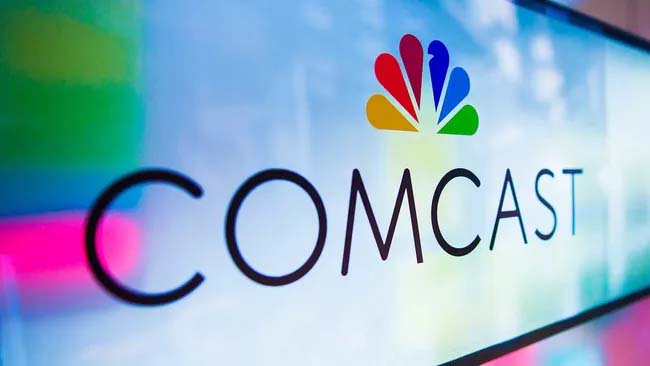FCC Opens Investigation Into Comcast’s Relations With Affiliates
In a letter to Comcast CEO Brian Roberts, FCC chair Brendan Carr expressed concerns that NBC and other networks are attempting ‘to extract onerous financial and operational concessions from local broadcast TV stations’

WASHINGTON—After months of attacking broadcast networks for “bias” in their news coverage and the way they handle relationships with affiliates, Federal Communications Commission Chair Brendan Carr has sent a letter to Comcast CEO Brian Roberts saying, “I have asked the FCC’s Media Bureau to examine Comcast’s relationships with its local broadcast TV affiliates—both owned and operated and independent stations—to ensure compliance with FCC regulations as well as the public interest standard.”
As part of that effort, Carr said he had asked the Media Bureau to obtain the company's contracts with NBC and Telemundo affiliates. NBC and Telemundo are owned by Comcast’s NBCUniversal media subsidiary.
Carr framed the letter as part of his ongoing attacks on national programmers for violating “public interest” rules that have allowed networks “to exercise more and more control over the operations of licensed local broadcast stations. This has created a clear tension between the many local broadcast stations across the country that want to serve their local communities and the interest of national programmers.”
This dynamic, Carr contended, has eroded public trust in “national news outlets,” a problem that the FCC has been trying to rectify with controversial investigations into “news bias” at stations owned by CBS, ABC and NBC. This is drawn fire from Democratic FCC commissioner Anna Gomez and other critics as an attempt by the administration of President Donald Trump to regulate news content and crack down on free speech.
“The public’s lack of trust has a direct impact on the public interest, as those national broadcast networks supply many of the shows and content that local broadcast TV stations air,” Carr wrote in the letter to Roberts. “Moreover, NBC and the other national programmers are also focused on distributing national content over direct-to-consumer subscription streaming services, like NBCUniversal’s own Peacock. This has the potential to create increased market power and incentives that do not align with broadcasters’ public interest obligations.”
Added Carr: “I have heard numerous reports that the approach that NBC and other similarly situated networks are taking in recent negotiations is an attempt to extract onerous financial and operational concessions from local broadcast TV stations. Under this approach, networks threaten termination of long-held affiliations, which could result in blackouts and other harms to local consumers of broadcast news and content. These practices suggest that the relationships between programming networks and their affiliates are not operating in the manner envisioned by FCC regulations. Indeed, the Commission has long been concerned about the balance of power between networks and affiliates.”
In the letter, Carr also raised the issue of retransmission-consent negotiations with virtual multichannel video programming distributors (vMVPDs) such as YouTube TV, which networks currently handle. Broadcast stations have repeatedly urged the FCC to change those rules so the stations negotiate those deals.
The professional video industry's #1 source for news, trends and product and tech information. Sign up below.
"While the issues raised in this letter may not be unique to Comcast, I have asked the Media Bureau to begin this review with Comcast given your company’s varied media holdings—broadcast networks (NBC & Telemundo), broadcast TV stations, cable networks, cable systems, and direct-to-consumer subscription streaming services," Carr wrote. “I want to ensure that Comcast’s ability to exert influence over its local broadcast affiliates does not operate to undermine broadcasters’ ability to comply with their public interest obligations.
“To assist my inquiry into these matters, I have directed the Media Bureau to obtain copies of the affiliation agreements that Comcast or NBC/Telemundo have entered into with local broadcast TV stations,” he concluded. “I have asked the Media Bureau to then ensure that these broadcast network/affiliate relationships comply with federal regulations as they relate to the FCC’s rules regarding station operations and control, ownership, affiliation and network program practices.”
George Winslow is the senior content producer for TV Tech. He has written about the television, media and technology industries for nearly 30 years for such publications as Broadcasting & Cable, Multichannel News and TV Tech. Over the years, he has edited a number of magazines, including Multichannel News International and World Screen, and moderated panels at such major industry events as NAB and MIP TV. He has published two books and dozens of encyclopedia articles on such subjects as the media, New York City history and economics.

